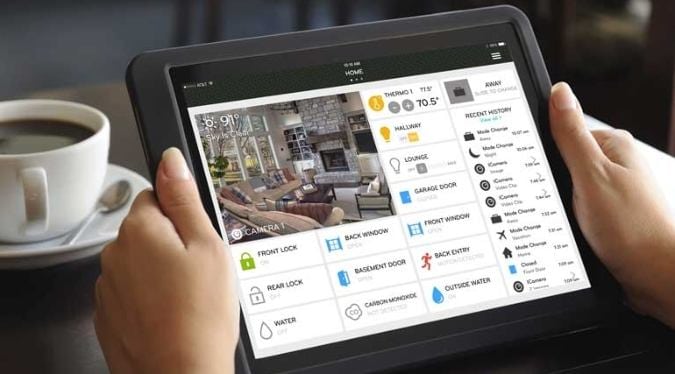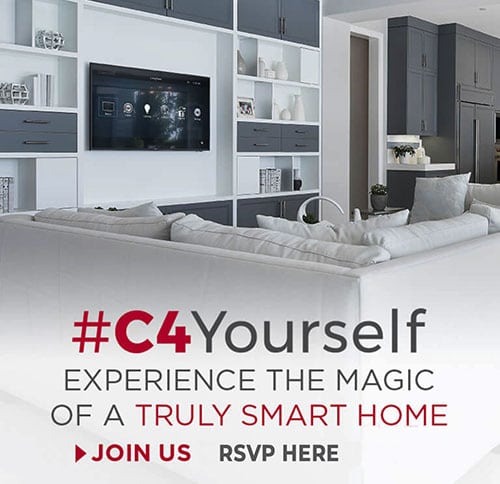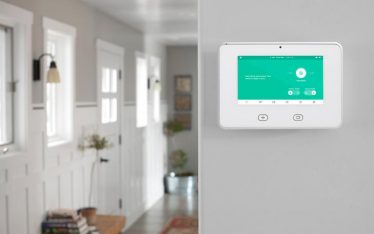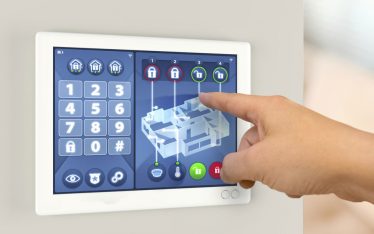Although smart home technology has been around since the mid-70s, it has experienced unprecedented advances in the last decade as smart technology has become more accessible, affordable and user-friendly.
This technology has revolutionised the way we live, giving us in-home and remote control of many aspects of our dwelling devices and utilities, such as:
- Home security
- Garden care
- Domestic and commercial appliances
- Garden care
- Home lighting
- Entertainment
- HVAC and much more
While many smart appliances and devices on the market work independently, a fully integrated smart home automation system provides a symbiotic technological ecosystem throughout the property.
Smart home automation systems are predominantly operated by a smart app control or smart voice controller; however, which of these two control options offers the best and most user-friendly interface for your smart home?
Voice control versus app control technology
App and voice control technology may seem self-explanatory; however, these technologies may be more suited to specific user preferences and requirements.
Smart app control
A smart app controller, app being a common abbreviation of ‘application’, is much the same format as the apps you would find on your smartphone or tablet.
In the case of a smart home application, this app will control all the various smart technologies and utilities you have integrated into your smart home, commanding actions from one convenient control interface.
The app often displays different zones within the dwelling and allows access to smart devices and utility operations for things such as:
- Controlling thermostats
- Water temperature
- Garden features and irrigation
- Indoor and outdoor lighting
- Audio and entertainment systems
- Security cameras and alarms
- and much more
One of the main benefits of an app control system is that the app can be installed on a remote smart device, such as smartphones, tablets and laptops from remote locations, providing complete control over your smart home. At the same time, at work or away on holiday, wherever an internet connection is available.
Smart voice controllers
Smart voice controllers, also known as smart speakers, have been on the market since around 2014, and the number of major technology manufacturers offering smart controllers has expanded significantly.
You may be familiar with some of the more popular smart voice controllers, including:
- Amazon Alexa
- Google Assistant
- Apple Siri
- Sonos One
- and more
These Smart voice controllers utilise natural language processing (NLP) technology, allowing users to interact with their smart devices and utilities using voice commands.
When you speak a trigger command, the smart speaker activates and performs its actions based on your following instructions.
Examples of voice command operations may include:
- Shut the lounge curtains
- Turn oven off
- Turn lights on
- Adjust temperature
- Adjust volume
- Search the internet and much more
Voice command systems provide a hands-free experience, allowing you to control your smart home while performing tasks like cooking, cleaning, or relaxing in the lounge.
Smart voice controllers are growing in popularity, driving fast advances in voice command technologies and their abilities.
Which is the best option for my smart home?
While you may hear a lot about the pros and cons of smart apps and voice command units, a variety of factors may influence which technology is best for your personal use.
Functionality
Suppose you live in a busy dwelling with lots of people. If everyone is attempting to gain access simultaneously or if there is excess background noise, you may cause voice system command confusion.
In this case, an app-based control system may provide more reliable and consistent performance for your smart home automation’s demands. However, if you spend a lot of time in the kitchen and require a more hands-free operation, the smart speaker technology offers a lot of benefits.
For those who want the best of both worlds, you’re in luck. Voice command and app-based systems can be integrated symbiotically to give you complete control over your smart home in all scenarios.
User experience
Smart technology is as much an experience as a central, automated utility or appliance control system, and system usability is critical.
Technology is moving quickly, and some ageing members of the population and people who aren’t technology-inclined may feel intimidated at first by new-wave smart home automation.
You must consult an experienced and helpful smart home automation installation integrator to ensure you install a system that occupants can operate confidently and provides consistent, reliable automation and security performance.
Accessibility
Home automation is essential for some members of our communities with age-related health conditions and people with mobility issues, wheelchair reliance and other potential impairments, such as blindness.
In these scenarios, a voice command system may be better than an app system alone. It offers more confidence in daily home tasks and ensures voice command emergency contact if assistance is required.
Implications
Another aspect to consider when deciding between smart voice and app command is the implications for things such as:
- Privacy
- Data security
- Home and asset security
- Interoperability within the smart home
- and more
Other considerations include professions. For example, an accountant may require more digital security, while a police officer may require more secure access control if firearms are kept on the property.
Voice command may not be as secure as an encrypted app control panel, and you need to calculate both technologies’ security pros and cons.
Both voice control and app control offer unique advantages and limitations when optimising your smart home automation installation
The choice between smart voice control and app control ultimately depends on the occupant’s preferences and specific use parameters.
It is vital to consult with all occupants and isolate what it is you need your smart home automation to do. Once you have that data finalised, it will ensure your chosen smart home automation integrator can tailor a system that provides optimal support for your lifestyle.
Design a smart home that works
Our team of smart home automation consultants and integrators are experts in cutting-edge smart solutions and IoT technologies. If you are looking to upgrade or create a new smart home contact our Sydney office today on (02) 8197 1133, or send your enquiry via email to design@smarthomeworks.com.au.






